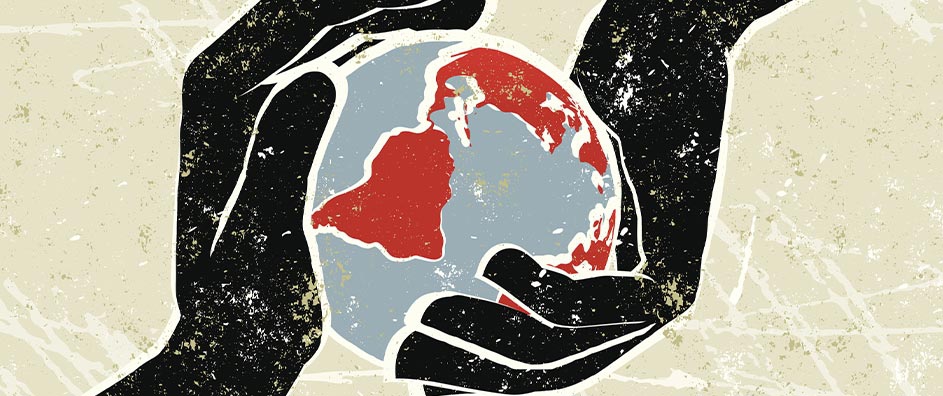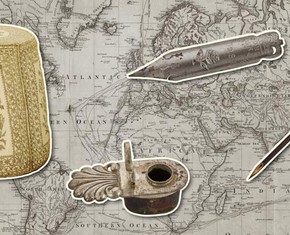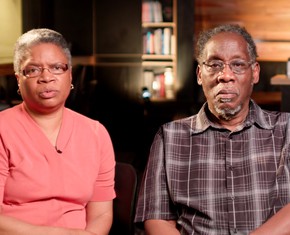The views expressed in our content reflect individual perspectives and do not represent the authoritative views of the Baha'i Faith.
Both Baha’u’llah, the founder of the Baha’i Faith; and his son Abdu’l-Baha, its exemplar, foretold the World Wars of the 20th Century.
Baha’u’llah publicly warned the rulers of the world’s most powerful nations and religions, beginning in a series of messages called The Tablets to the Kings in 1873, that their thrones, their kingdoms, their nations and their Faiths risked devastation and ruin if they continued to follow their current belligerent and warlike course. He told those rulers that “They must put away the weapons of war:”
We pray God—exalted be His glory—and cherish the hope that He may graciously assist the manifestations of affluence and power and the daysprings of sovereignty and glory, the kings of the earth—may God aid them through His strengthening grace—to establish the Lesser Peace. This, indeed, is the greatest means for insuring the tranquillity of the nations. It is incumbent upon the Sovereigns of the world—may God assist them—unitedly to hold fast unto this Peace, which is the chief instrument for the protection of all mankind. It is Our hope that they will arise to achieve what will be conducive to the well-being of man. It is their duty to convene an all-inclusive assembly, which either they themselves or their ministers will attend, and to enforce whatever measures are required to establish unity and concord amongst men. They must put away the weapons of war, and turn to the instruments of universal reconstruction. – Baha’u’llah, Epistle to the Son of the Wolf, pp. 30-31.
Later, in the early 20th Century, Baha’u’llah’s son Abdu’l-Baha continued his mission of peace and unity, and warned world leaders that the course they continued to pursue—the build-up of massive armies and armaments—would inevitably result in in “the most dreadful calamity in the world of humanity:”
From the beginning of the Balkan Confederation a number of important personages inquired of me whether this Balkan war was the expected universal war, but it was answered, “It will terminate in universal war.” In brief, the point to make clear is this: His Holiness Baha’u’llah nearly fifty years ago warned the nations against the occurrence of this “Most Great Danger.” Although the evils of war were evident and manifest to the sages and scholars, they are now made clear and plain to all the people. No sane person can at this time deny the fact that war is the most dreadful calamity in the world of humanity, that war destroys the divine foundation, that war is the cause of eternal death, that war is conducive to the destruction of populous, progressive cities, that war is the world-consuming fire, and that war is the most ruinous catastrophe and the most deplorable adversity. – Abdu’l-Baha, Star of the West, Volume 4, p. 244.
If you’ve never heard of the Balkan Confederation, you’re not alone. Formed in the late 19th and early 20th Century, the Balkan Confederation movement tried to establish political unity among the Eastern European nations of Yugoslavia, Albania, Romania, Bulgaria and Greece. Its aims—unity, internationalism, equality and freedom—mirrored the ideals of the social democracies of Western Europe. The movement gained momentum after the collapse of the Ottoman Empire in 1908—which also freed Abdu’l-Baha from his forty years of imprisonment—but failed when World War I began in the Balkans six years later. Abdu’l-Baha, in an October 1914 letter to the British Baha’i author Beatrice Irwin, characterized that terrible war—where 16 million people would die—as a “crime committed against humanity:”
The cries and lamentations are raised from every part to the Supreme Apex; the moanings and shriekings have thrown a mighty reverberation through the columns of the world; the civilized countries are being overthrown; eyes are shedding tears, hearing the weeping of the fatherless children; the hearts are burning and being consumed by uncontrollable sobbings and piercing wailings of helpless, wandering women; the spirits of hopeless mothers are torn by rayless grief and endless sorrows and the nerve-racking sighs and the just complaints of fathers ascend to the Throne of the Almighty.
Ah me! The world of creation is totally deprived of its normal rest; the clash of arms and the sound of murderous guns and cannon are being heard like the roaring of thunder across the heavenly tract, and the explosive materials have changed the battlefields into yawning graveyards, burying for eternity the corpses of thousands upon thousands of youths—the flower of many countries who would have been evolving factors in the civilization of the future.
The results of this crime committed against humanity are worse than whatever I may say and can never be adequately described by pen or by tongue.
O ye governments of the world! Be ye pitiful toward mankind! O ye nations of the earth, behold ye the battlefields of slaughter and carnage; O ye sages of humanity, investigate sympathetically the conditions of the oppressed; O ye philosophers of the West, study profoundly the causes that led to this gigantic, unparalleled struggle; O ye wise leaders of the globe, reflect deeply so that ye may find an antidote for the suppression of this chronic, devastating disease; O ye individuals of humanity, find ye means for the stoppage of this wholesale murder and bloodshed. Now is the appointed tune! Now is the opportune time! Arise ye, show ye an effort, put ye forward an extraordinary power, and unfurl ye the Flag of Universal Peace and dam the irresistible fury of this raging torrent which is wreaking havoc and ruin everywhere!
Although this captive has been in the prison of despotism for forty years, yet he has never been so sad and stricken with regret and grief as in these days. My spirit is aflame and burning; my heart is broken, mournful, heavy and despondent ; my eyes are weeping and my soul is on fire. Oh! I am so bowed down and sorrowful. – Ibid.
As Abdu’l-Baha recommended to the world’s leaders, many did “reflect deeply” after World War I came to a close, looking for “an antidote for the suppression of this chronic, devastating disease … this wholesale murder and bloodshed.” Those leaders conceptualized, negotiated and ultimately formed humanity’s first feeble attempt at a global Parliament of Man—the League of Nations. In the next essay in this series, we’ll look at its promise, its progress and its ultimate collapse.
















Comments
Sign in or create an account
Continue with Googleor